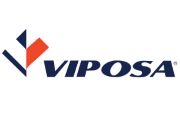VIP LEATHER GPS
leather in a sustainable future
OUR POLICY ON LEATHER SOURCING
Information quality and transparency with all of its stakeholders are considered main pillars for VIPOSA. With this mindset, a reliable mechanism has been developed in order to ensure clients around the world access to complete and detailed information regarding our raw material supply chain.
VIPOSA's suppliers commit to common standards regarding cattle purchase policy, ensuring that all of the animals come from farms that:
- Operate following ethical and legal principles in order to guarantee animal freedom and welfare;
- Are not located in illegal deforestation areas, protected zones or indigenous lands;
- Do not have any kind of environmental embargoes;
- Do not use child or analogue to slave labor.
In order to create and enable the information chain, the suppliers adhere to the traceability policy reporting all the necessary information so that they can be regularly audited.
OUR AUDITS
In order to constantly verify the suppliers compliance to the established policy, regular audits are performed as detailed below:
- Suppliers with a cattle traceability system (established in accordance with the policy above) are considered homologated, once they are already third-party audited and emit their own periodic reports;
-
Suppliers without a systematic traceability audit, are subjected to
an independent external audit by VIPOSA at intervals not exceeding
60 days. The audit consists of a detailed evaluation on the
following documents of a random day of slaughter within the period:
- Slaughter list;
- Socio-environmental analysis report of the farms that originated the GTAs.
Slaughterhouses without a socio-environmental analysis report for the farms must also provide the farms' Rural Environment Registry – CAR (Cadastro Ambiente Rural), so that VIPOSA can carry out the analysis through specialized consulting firms
If any kind of irregularity is found, the hides are segregated and the supplier is informed immediately in order to provide clarification. If the irregularity is proven, the supplier is registered as a “restricted supplier” and its supply suspended until proof of regularization.
